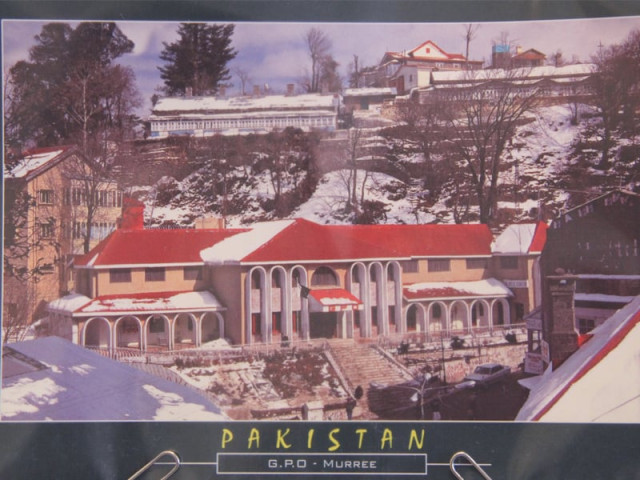Global perspective: Postcards from across the globe start ‘dialogue’ over drones
Students gathered at the Art Chowk Gallery to discuss ‘drone strikes’ and ‘terrorism’.

Postcards received from acquaintances and students across the world were displayed at the dialogue. The postcards contained messages condemning the drone strikes and portrayed sympathy for those affected by the attacks. PHOTO: AYESHA MIR/ EXPRESS
“We were not happy what the US and Pakistani governments were saying regarding the drone strikes,” said Neha Ansari, the event organiser and a recent graduate of the Fletcher School of Law and Diplomacy at the Tufts University. She organised ‘Drone Dialogue: A transnational yet personal conversation’ at ArtChowk gallery on Monday in an attempt to divulge the reasons, limits and consequences of the drone strikes by the US in Pakistan.
Was the debate being grounded on ‘false premises’ or the issue too ‘new’ to discuss, was the question Ansari asked the audience, when she explained how Shayan Rajani, their fellow student, had come up with the idea to make people talk about the drone strikes. “The idea was to ask our friends from different countries to write postcards expressing their views on the issue,” she said. “We ended up receiving two dozen post cards.”

Postcards received from acquaintances and students across the world were displayed at the dialogue. The postcards contained messages condemning the drone strikes and portrayed sympathy for those affected by the attacks. PHOTO: AYESHA MIR/ EXPRESS
The postcards sent by the students from the US, Indonesia and France caught the most attention from the audience. Andi Sparinga from Indonesia, in her postcard, wrote: “Deepest condolences, coming from a country that was also labeled by the US as a ‘safe haven’ for terrorists. I’m against terrorism but the policies regarding war on terror, especially drone strikes that kills lots of innocent lives, simply goes too far.”
Azka Shoaib, a Pakistani student condemning the drone strikes as ‘inhumane’, described the magnitude of these strike. “With a click of a button, millions of lives are destroyed,” she wrote.
The postcards written by American students proved to be of greater interest for the attendees as the perspective of the Americans on the issue was an interesting addition to the dialogue. “The fact that a US military member can sit in front of a joystick as if he’s playing a video game and kill people (innocent or not) - that is morally objectionable to me,” Nathan Kennedy, an American student, wrote in his postcard. “I agree with many people that our methods should be as moral as possible but I think most of us agree that issues, such as violence and extremism, need to be addressed.”

Several students, who were studying in the America, also shared their views on the issue through recorded video messages. The students hoped for transparency in the details of the strikes and expressed their sympathy over the loss of innocent lives.
Azhar Jamil, a political activist who was formerly associated with the Pakistan Tehreek-i-Insaf, considered ‘Taliban’ as a major threat for the national security of Pakistan. “We have to understand the enemy within - only then will be able to maintain peace,” said Jamil.
He termed the concept of drone attacks as ‘unethical’. “Someone sitting in Nevada presses a button and destroys scores of human lives - this is not right,” he said.
He lamented that the US foreign policies were ‘imperial’ while clarifying his stance that he was not against the American people but their government’s bipolar policies.

“American forces would leave soon, it is now up to us to take the initiative for peace,” Jamil told The Express Tribune. “Every single citizen must play their part - it should be the people standing up to the Taliban, peacefully, as they can open fire on us but we cannot. We have to remain peaceful for peace to prevail.” he concluded.
Published in The Express Tribune, July 3rd, 2013.



















COMMENTS
Comments are moderated and generally will be posted if they are on-topic and not abusive.
For more information, please see our Comments FAQ